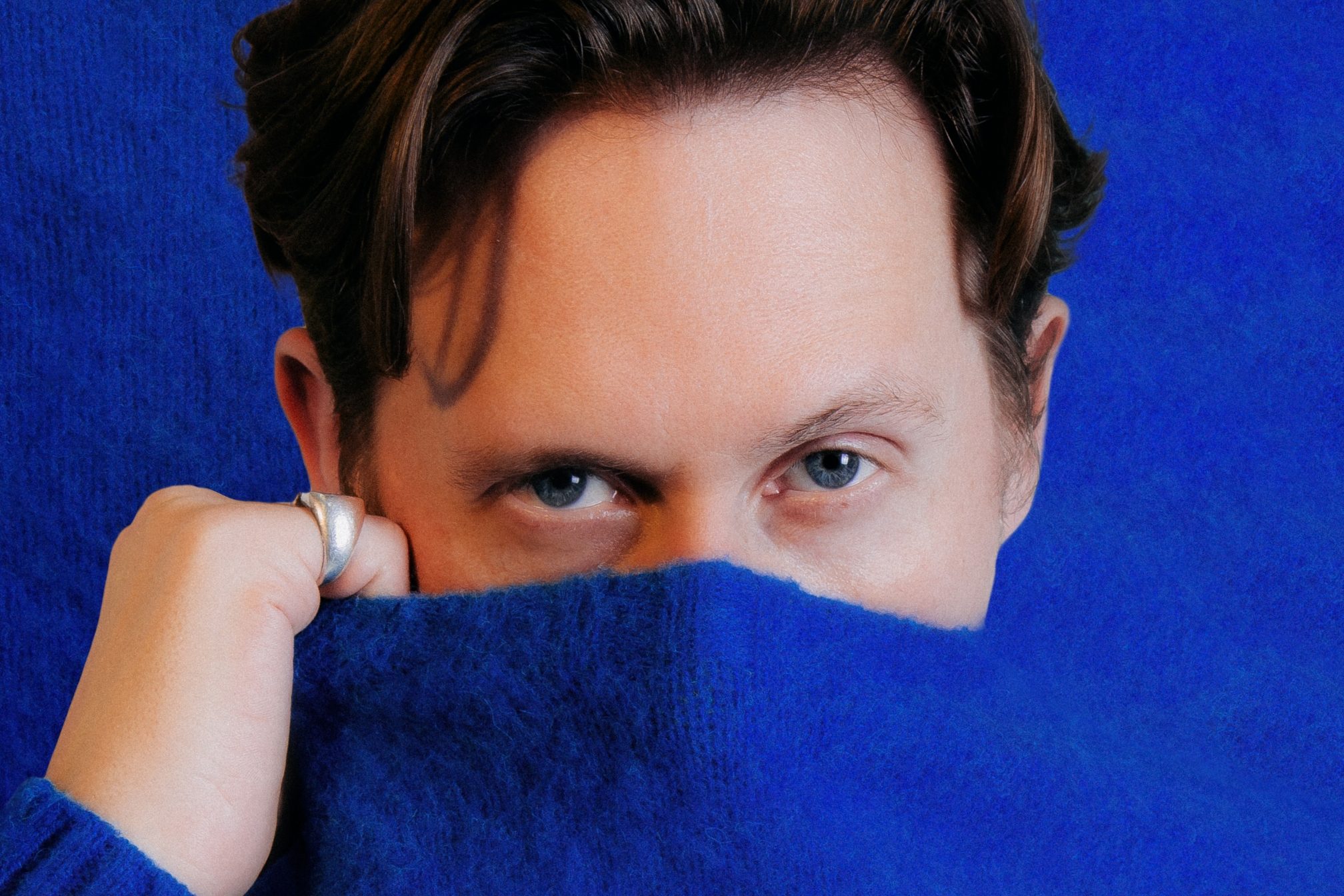 Features
Features
Bigger vision: Joy Orbison is ready for the next step
13 years into his career, Joy Orbison feels like he's just getting started. The London DJ/producer speaks to Patrick Hinton about dealing with hype, coming into his own as an artist, and pushing things forward
In autumn 2015, ripples of mirth and slight bewilderment were sent through Joy Orbison’s fanbase when Cav Empt released its A/W15 lookbook, starring the British DJ/producer as its model. Although he’s known to be associated with the Tokyo-based streetwear brand, it was unusual for the artist to put himself out there like that. He almost never gave interviews and didn’t have much of a social media presence, generally containing his public profile to letting the music do the talking. That coupled with his slightly awkward poses saw the shoot become an instant target for memes. “I came under a lot of flak for that. But do you know what? If I'm honest, I actually really like it. It was really fun,” reflects Joy Orbison. “I love playfulness. And in a weird way, I quite enjoyed that people found it funny or weird. I'd rather be that than be really serious. I'm called Joy Orbison for fuck's sake!”
Read this next: The Cover Mix: Joy Orbison
That’s the comment that concludes our interview, but it feels like an appropriate way to lead into a profile of Joy Orbison, real name Peter O'Grady, who’s become increasingly open and accessible in recent years. His apparent shyness has melted away — he’ll now happily star in an EVISU x Palace advert alongside Pa Salieu or decorate a mix for popular video game Grand Theft Auto with jokey comments from himself and friends. “Because I was so quiet when I first started, and I kept myself really distant, I think there was a presumed air of seriousness that actually wasn't there. That's the thing: if you don't fill that silence, people will have an opinion of who you are, they'll get the wrong end of the stick.” As two hours of conversation has made clear, Joy Orbison is now ready to fill that silence.

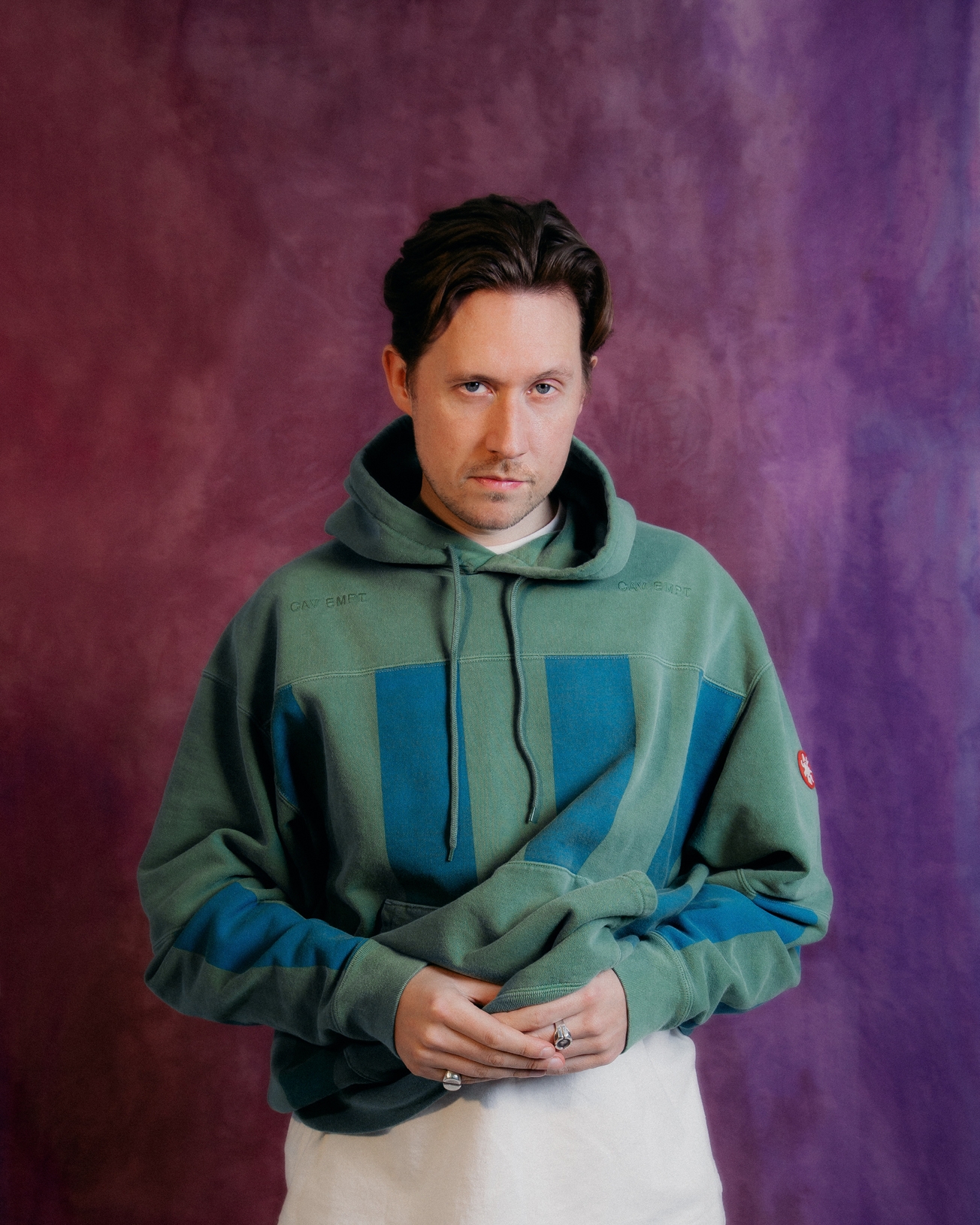
To dial back for a moment: arriving onto the scene doesn’t get much bigger than his debut release ‘Hyph Mngo’ in 2009. It generated a tidal wave of hype, and has gone down as an era-defining post-dubstep classic. But its success played a part in Joy Orbison pulling back from the spotlight. Made on a friend’s laptop and released while he worked in the post room of a Soho-based music publisher, he felt totally unprepared for the scrutiny and attention it generated. He wasn’t even sure if he wanted to be a producer at the time. “I didn't know what I was doing, I really didn't feel like I'd earned it,” he says.
Read this next: "It went completely nuts": 5 DJs on their career taking off during lockdown
Amid the love, he read some slating of his production skills online, which bugged him. Like Michael Jordan in The Last Dance, he took the criticism personally, and channelled that irritation into knuckling down on learning his craft. "I was like: you need to get better, make yourself bulletproof," he says. “That's kind of why I spent the years with Boddika. I was really getting taught, being around professionals. I needed time to learn.” It’s only recently, nearly 13 years later, he feels he’s got to the point where he’s an accomplished artist and stepping into the spotlight is deserved: “When I was starting I was like: who am I to be putting a record out? Now I feel confident, because I feel I've got something I can say, and I feel like I've earned my place.”

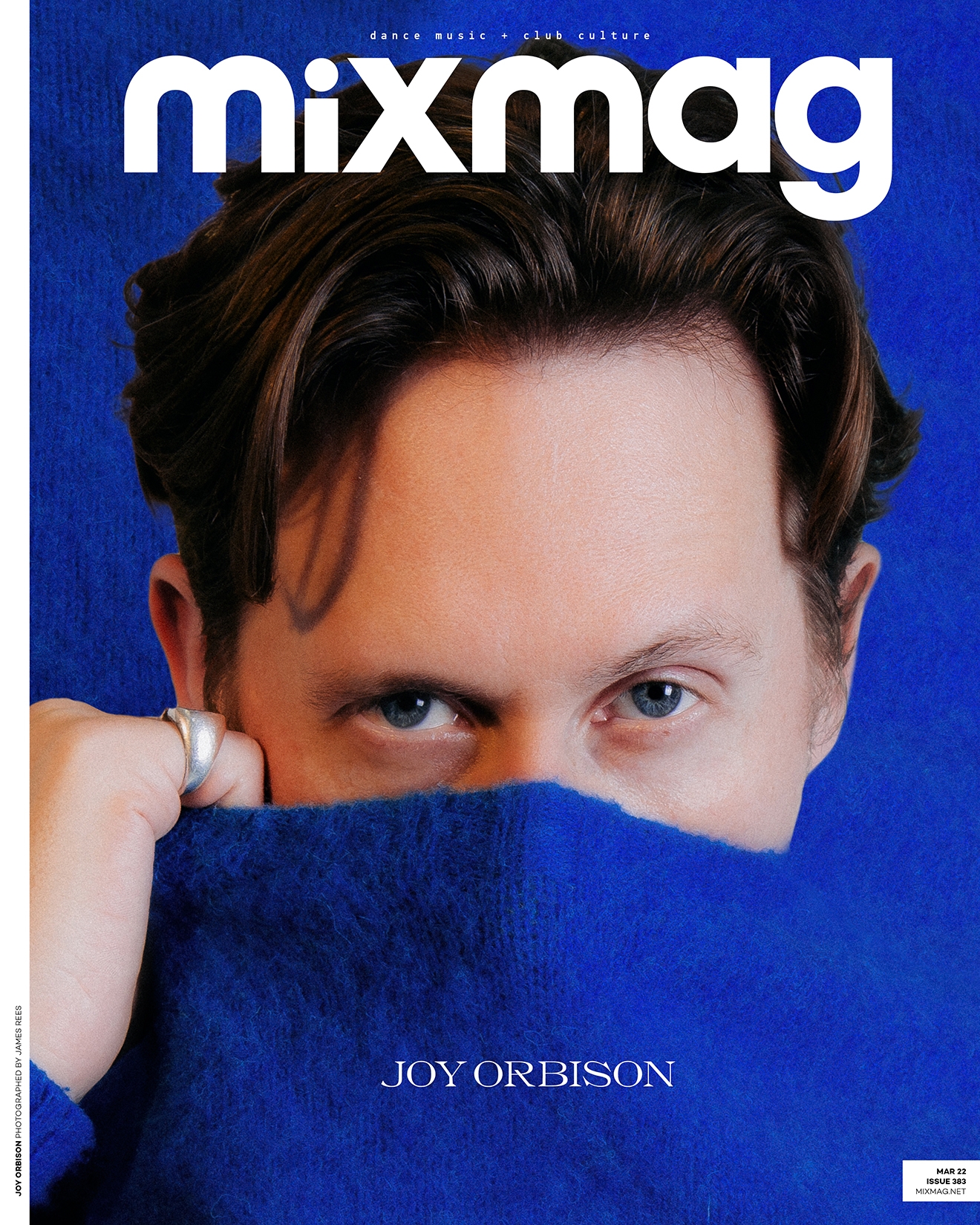
It's a humble position to have taken 'til now, considering the monumental bangers that have marked his discography from the start: tracks like 'Ellipsis', 'Sicko Cell', 'Big Room Tech House DJ Tool - TIP!', those Boddika collabs 'Swims', 'Mercy', 'Severed Seven', and others, all lay waste to clubs. But as Joy Orbison's reputation for tearing up a dancefloor grew and his DJ skills became sought after at bigger events and stages from Ibiza to Playa del Carmen, his enjoyment of touring declined. "I felt like I was on a treadmill of DJing. I was really losing interest in that, I felt really disconnected from the scene," he says. He started to turn down many of the booking requests coming his way, and felt unsure about where to go next with his career.
Around four or five years ago, he started regular studio work outside of the Joy Orbison project, producing for singers and rappers such as Arlo Parks, Goya Gumbani, Loyle Carner and TYSON — sometimes credited, sometimes hidden. At the same time, he was revising what he wanted Joy Orbison to be. "I had these ideas, but I was on my own a bit," he says. While feeling disconnected from DJing, he felt connected to the collaborators he was doing sessions with, and the idea of merging that approach into his Joy Orbison output started to make sense.
A run of no solo EPs through 2013 to 2016 was broken in 2017 with the release of two EPs: ‘Toss Portal’ and ‘Off Season / Fuerza’, but it was the following year’s ‘81b’ where a shift in mindset was most apparent. The six-track EP showcased a deeper, more entrancing side to his artistry; at times beatless, it focused more on humid atmospheres than igniting the dancefloor.
Read this next: Post-club: Why DJs and producers are leaving nightclubs behind
The idea for a mixtape called 'still slipping' had been developing in his mind for years. Through lockdown he assessed his bank of sounds and set to work on building something coherent, leading to the release of ‘still slipping vol. 1’ on XL last August. 14 tracks long, peppered with vocal collaborations, and maintaining a balmy atmosphere reminiscent of a late-summer's evening throughout, it's a noticeable departure from the club-wrecking 12"s that defined the first half of his career: the thick bass notes of 'froth sipping' are languid rather than seismic, 'runnersz' takes a woozy slant on drill influence, the clicky percussive beat of 'better' is a subtle complement to the dreamy lead vocals of Léa Sen.
No singles were released from the record. "I almost see the whole thing as one song, and that's why I didn't really want any of the music to be listened to on its own," says Joy Orbison. The terminology of 'mixtape' is also a response to what he sees as the inflated importance and scrutiny the dance music world assigns to the word 'album'. As a voice at the end of second track 'sparko' deadpans: “The second you change the language to mixtape, nobody cares.”

Chattering samples of his family members form a bedrock throughout the record. Taken from voice note messages and sly recordings made at family functions or during one-on-one conversations, at times they offer an intimate insight into Joy O's home life that reflects his growing confidence in his public profile and music. The gently melancholic 'in drink' opens with his mum Lorraine discussing her parents getting into boozing, and closer 'born slipping' culminates with a conversation featuring his uncle Keith who recently passed away.
Other samples are light and funny, such as his cousin having a “couple of porn star martinis” and making weed cakes or his mum complimenting his music with that kind of sweet but faint praise parents slip into when relating to younger generations' interests: "It's got... it's not a melody, but it's got something you can.. you can almost hum to, and it will stay in your mind — maybe just a snippet of it."
"I often record things if I know I really liked them, or if I'm enjoying the moment. It's like what people do with cameras right? They record or take a picture — I think my thing is to record the audio," says Joy Orbison. "It's like capturing the air around it. I have really positive memories in my head of a lot of things I've done, and actually there's a whole load of shit I did when I was younger that I wish we had [evidence of]. We didn't take photos. Now: if there's something that feels really good, I'm conscious of trying to capture it."
Read this next: How Fred again.. hit the big time by turning his life into a symphony
That extends to wanting to record his family history and conversations. He describes his parents as "not imposing people" who don't readily bang on about the past, even when he would like them to. Most of the stories he's been drip fed were chanced upon organically. Finding out Stevie Wonder was the first music he heard as a newborn only came up when he mentioned that ‘Talking Book’ was his favourite Stevie album. "My dad was like, 'oh I played that in the car home from hospital when you were born'. He doesn't dress it up." Just recently his dad off-handedly mentioned watching Coxsone Soundsystem at Anerley Town Hall in the '70s. "I was like, what, Sir Coxsone?! You've never said that! And you know I would like that."
He even has a recording of the last time he saw his uncle Keith alive. "I think I knew," he shares. "So, as much as my methods might seem a bit weird, I don't totally regret it. It's nice to do."
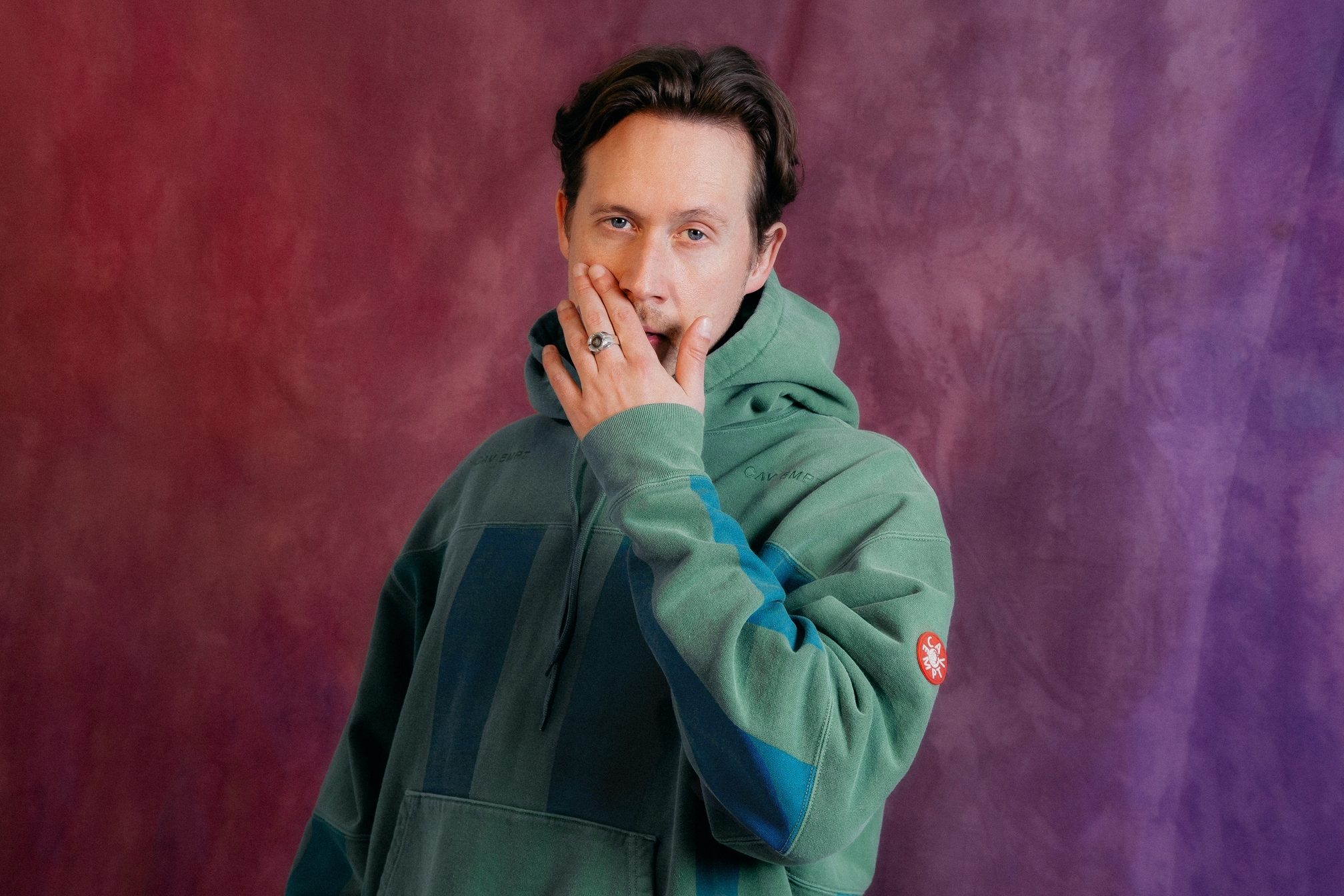
The attachment Joy O feels to his family was strengthened by moving around regularly during childhood. His dad was a commissioning engineer who followed work up and down the country: they lived everywhere from Scotland to Southampton, and numerous places in between. "My dad said the other day he's lived in 29 houses — I think I'm slightly over."
Through this, his family were a constant, and he'd romanticise his extended relatives staying close knit in suburban areas around London, which is also where his formative years were spent. “And everyone [in my extended family] is a very big character, so I've always grown up looking at them feeling a bit in awe.”
They were also important in finding his way into dance music. There were connections on both his paternal and maternal side: his uncle is Ray Keith, the likes of Nicky Blackmarket, Ash Attack and Nookie would be at family events, and while there was never any push for him to follow that path, seeing it as a viable option had an impact on his mindset. “I was not academic, I didn't do very well at school. My dad got me a plumber's apprenticeship which I never did. Seeing those musicians, I thought, there's a world that's not that far away, maybe that's possible, because I didn't really have anything else.”
The keen focus on his own family might seem like a sentimental turn for an artist whose bread and butter has been more on the club banger beat, but there's still rooting in dance music and his experiences coming up in that scene. "It's very self-indulgent," he admits, "but also, hopefully it's kind of relatable." That's something he values. "When we were growing up, dance music seemed so relatable, everyone got into it through their older brother or your mate's older sister. It didn't feel elitist. And I think now it feels a little bit less like that." He appreciates peers such as Source Direct and Will Bankhead, who have “incredible minds and vision for music” but “don’t talk bollocks about it”.
"Loads of my heroes are not scholars and writers, they're just sick — really normal people did really amazing things, and I'm still really drawn to that.”
Read this next: A generation of DJs are working 9 to 5 without compromising their music dreams
"You can fabricate something and say you're a space alien, or do what a lot of people do nowadays where they take from other cultures," he ponders of artists making a name for themselves, but he wanted his own music to reflect reality and not be spun into myth-building. “You listen to 'Boy In Da Corner' and it's an inner city, Bow E3, grime record,” he says, gesturing to a signed record on the XL office wall behind us. “But our story in the suburbs is very different. I think a lot of dance music was like that. Every little town had a record shop and a community. I'd rather be honest about that than pretend I'm from Detroit or pretend I'm something I'm not. Maybe on paper it isn't romantic or beautiful, but when I look at it, I do see it that way. It's making something glossy out of the mundane "
The artwork for 'still slipping vol. 1', starring his cousin Leighann wearing a vintage fur coat and dragging on a cigarette while hanging out washing in Harlow, is a perfect representation of that. "I love that kind of 'glam but not' look — obtainable glam."
Joy O's well-documented connection to jungle legend Ray Keith was through his marriage to Leighann, and she was the one making an effort to educate a young Pete on Ray's output. "She was my introduction to more interesting, alternative music. I was really lucky. We lived in Scotland at the time, and she would send me CDs and say 'this is Ray'. I was about 10 or 11, thinking 'these are a bit weird' but being quite fascinated, because my cousin was cool," he recalls. "She made a point of focusing on me — she didn't have to do that, she had a busy life. If she hadn't done that, there's a very good chance I wouldn't be here. So it felt quite poignant to make her the centre point of it. And it looks sick doesn't it!"
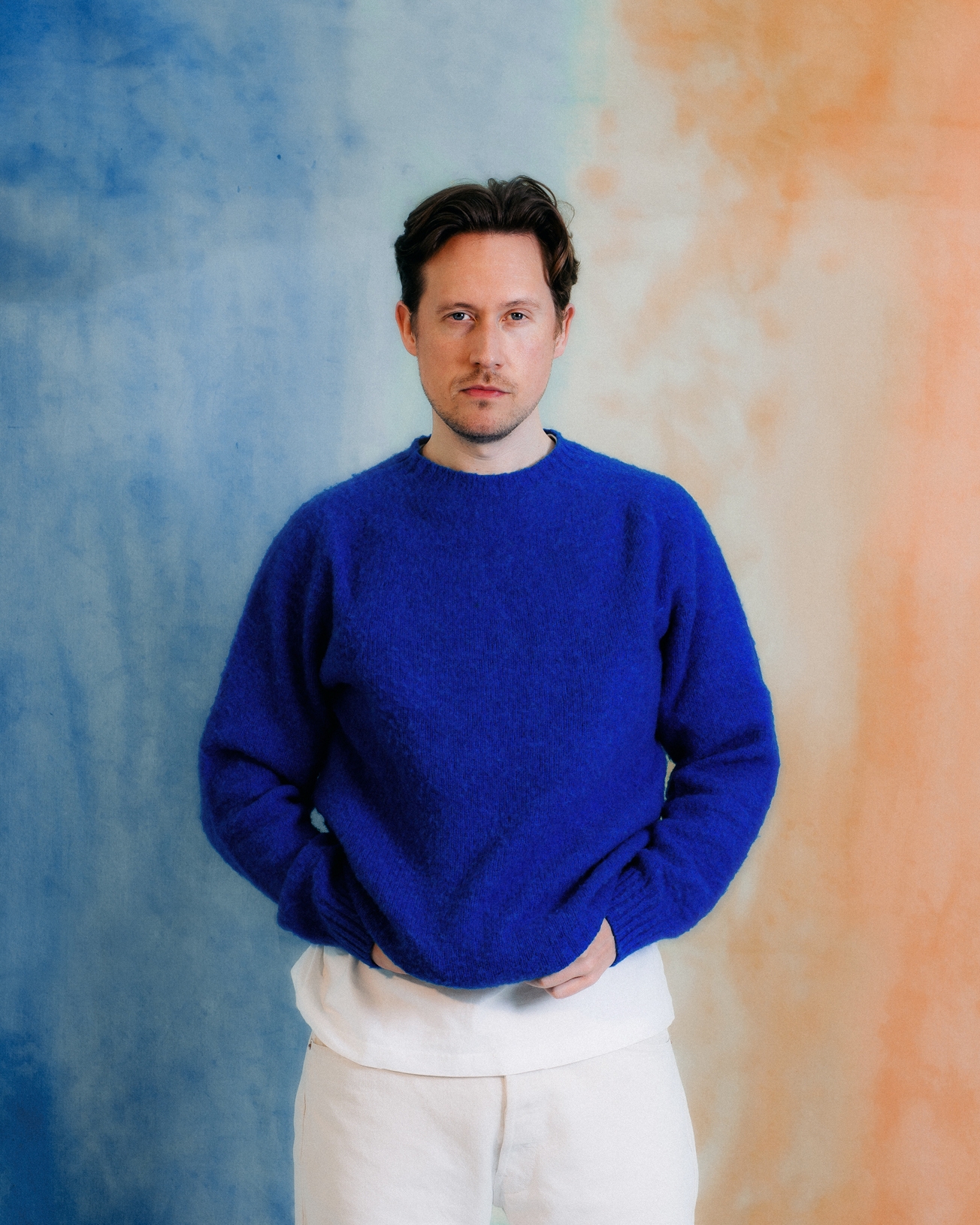
Drum ‘n’ bass informed his latest release, two-track dancefoor record ‘pinky ring / red velve7’ that - in case you were worrying - asserts he hasn’t left the club behind. His girlfriend used to be a d‘n’b DJ with a slot on Rude FM, and remains a keen clubber who has encouraged him to get out more. “I kind of stopped going to things, I didn't really go out if I wasn't working,” he says. “But she's quite good at getting me excited again about being around the things that influence you.” That influence, coupled with his friend Braiden sharing some constructive criticisms of ‘still slipping’, pushed him to make his fiercest bangers in years, channeling inspiration from Metalheadz, Bad Company and No U Turn Records.
“You listen to late-90s drum 'n' bass, everything has a topline, and they were really interesting in experimenting with what can be. These little earworms that make tracks catchy don't have to be obvious. You can do quite odd things and they become really notable,” he says. “That was really forward-thinking music, and I think it stills sounds quite forward-thinking, I think there's areas within that where there's no date to it.”
Read this next: 12 of the best late-90s drum 'n' bass tracks
‘red velve7’, described by O’Grady as “basically me on my decks staring at my bedroom wall when I was a kid, wishing I was doing my big intro on the valve sound-system”, is an atmospheric builder that hits hefty climaxes; ‘pinky ring’ rides a shuffling beat and catchy vocal line before escalating to peak-time mania with staggering bass throbs.
He thinks about the tracks in quite functional terms: “I wanted to have accessible elements, but try and do something a bit different with it. Making those kinds of basslines is quite long-winded, a lot of effort goes into it, but hopefully that means it won't be easily copied, and it’s served its purpose of adding something.”
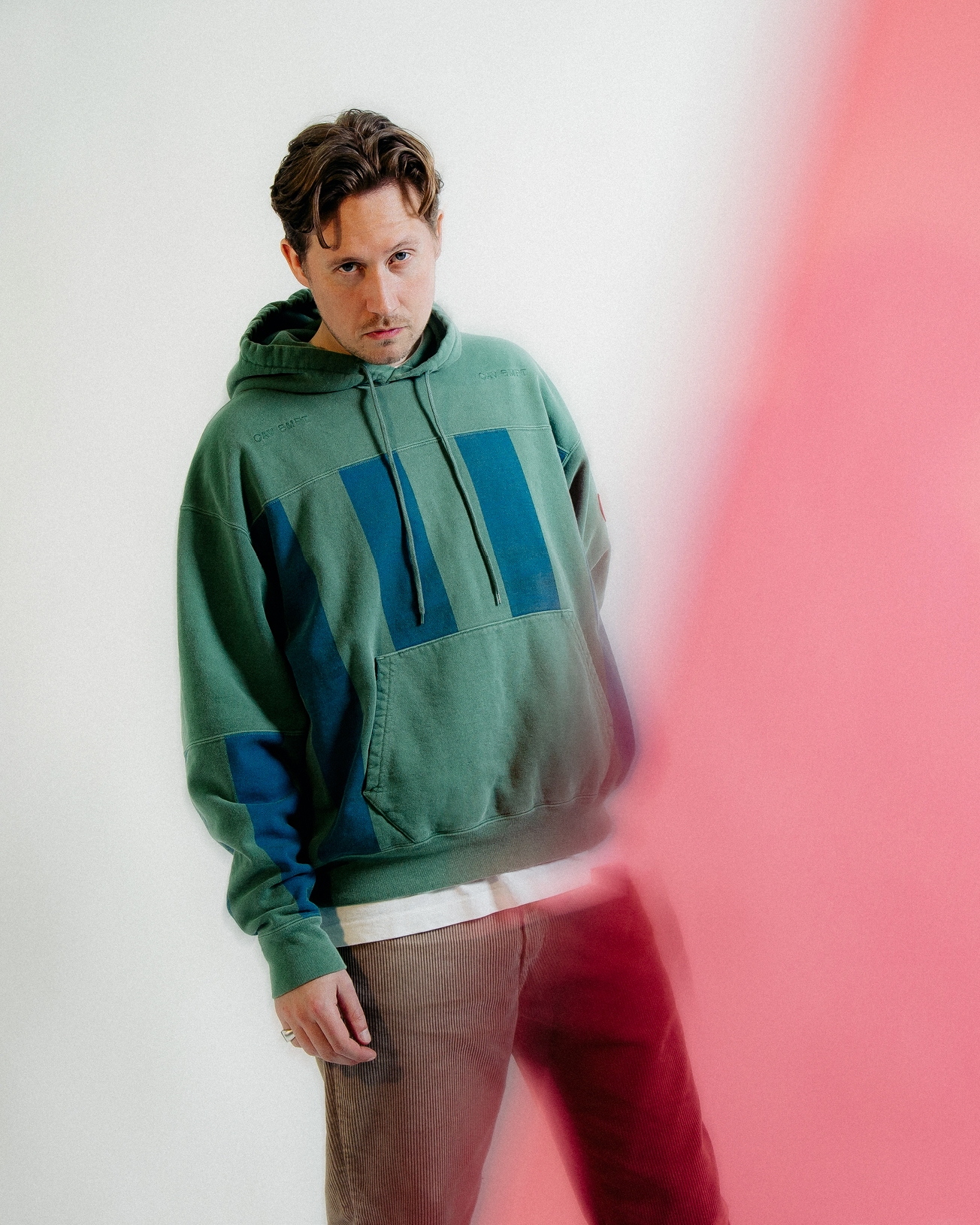
Adding to the culture is key for Joy Orbison. Any disillusionment he feels towards dance music is related to areas of perceived stagnancy in the scene. “Obviously I lived and breathed it for so many years, but I think now we're getting to a point where the spirit and innovation that was in dance music, is not in dance music any more,” he reflects, suggesting the “people who would have been making dance music are now making other forms of music” such as drill, hip hop and “weird pop music — you didn't have that when I was growing up.”
Read this next: How UK producers set a new standard for drill
He remains invested in dance music, and doesn’t romanticise the era he came up in: “Dubstep was incredibly nerdy. It was mostly forum people, everyone had a really stupid name and bad gags.” The queue at FWD>>, often deified with talk of who was there, he recalls matter-of-factly as comprising “geeks in like fleeces and shit.”
“I hate the idea of being like 'it's all shit now', because I don't think it is. I think you've got to find your area.”
He's conscious of the difficulties new artists face as the scene expands. “I was lucky because the scene didn't exist the way it does now when I started. I had no aspirations beyond Ben UFO playing my tunes,” he says. “Young artists have got to be pretty fully formed straight away, they haven't got 10 years to do it. I think that's really tough.” As an artist afforded time to grow, he’s introspective of his own role in making things better. “It's no good me complaining about there not being enough emphasis on pushing things forward at the moment. It's like, well, maybe you're not,” he says to himself, “you need to make an effort as well.”
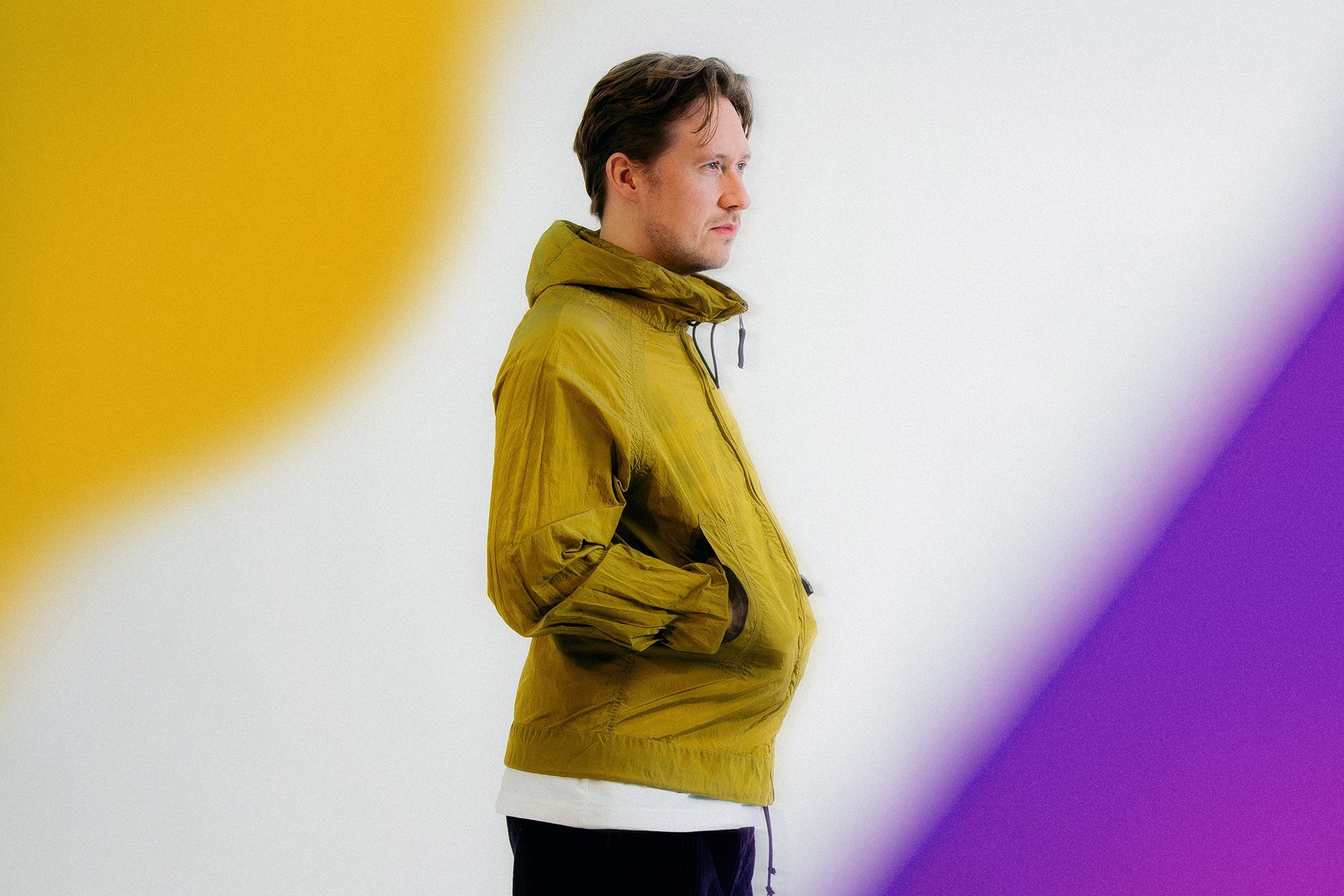
That’s something he’s aiming to do with his new club night Just For You. A “mixture of new and established names” has been promised, with line-ups remaining secret until you arrive with an open mind and experience the sounds curated for that evening. The launch party, held on a Thursday night in Janaury at Soho venue Below Stone Nest, was an absolute roadblock, with hundreds of ravers spilling out over Shaftesbury Avenue hoping to get in. That was helped by some heavy hints being dropped about rave icons in the making Overmono playing (“We were a bit cheeky about it, because we wanted to give it a bit of a boom”), but inside it was the drum ‘n’ bass cuts spun by Rupture residents Mantra and Bekah that most gripped the crowd. Bristol’s rising soundsystem sheller Josi Devil was also a hit.
Although Joy O was slightly surprised by the demand for the launch party, he thinks “it won't always be like this. It will die down and ease off, so it will get to a point where I think you can just rock up.” Just For You being accessible and allowing for spontaneity is important to him. “I want to do it in Central London, because everyone congregates in the middle, it's just the same distance hopefully for someone from West to East. If I'm totally honest, I don't love going to Hackney Wick to a club. I love the idea of people stomping around Charing Cross after a club night on a Thursday. Why shouldn't we be there?” It will always be free of charge. Artists on the bill are all paid the same split from the bar takings, and Joy O, who says he “probably won't play many”, makes nothing.
Also coming up he’s joined forces with Cav Empt to throw a Still Slipping party at Ministry of Sound, taking over the London institution with a line-up that ranges from Mexican reggaeton DJ Rosa Pistola to UK funky and house champions Geeneus & Tippa to Joy Orbison being joined by poet James Massiah. “Those people are in different scenes, so I quite like putting that together, and I think it links into the record. It’s people that inform what I'm doing, and the best bits of what I think is going on at the moment.”

Joy Orbison sounds most engaged by DJing when discussing ways to freshen up club spaces. “The bit that I struggle with is when you go to these big spaces and someone's playing some Shed derivative. We were there 10 years ago; are we still there now?” He references an experimental track by a Mexican artist JOÃO LAGRIMA DE OURO he found as a free download on SoundCloud and has “seen tear up Warehouse Project”, and his hopes of seeing less safe line-ups. “Why can't these artists that I'm playing be in those rooms? That's what I would love to see: you can play something from this other world, and then all of a sudden realise they're perfect for this! That would be exciting.”
Electronic disruptors like Arca, SOPHIE and Oneohtrix Point Never who started out on niche underground labels and went on to impress their style on the likes of Kanye West, Madonna and The Weeknd also excites him. That’s something he’d like to replicate with collaborations and production credits. “I don't go writing for these people to just write what they already write, I try to do something different, and hopefully I get in those rooms for that reason,” he says.
Read this next: Post-PC Music: How the London label inspired a new stage in the pop continuum
“I don't want to mimic anyone's thing,” he adds, while discussing the track ‘I Do’ he made with drill rappers KO and DA last year, which heavily sampled ‘Hyph Mngo’ and raised a ruckus at festivals last summer. Cautious of stepping into that world without due expertise, he collabed with Ghosty on the beat and had the tune mixed by Sean D. “I'm not trying to be a drill producer. If I'm gonna do something drill-related, it's not really gonna be 'drill’ drill,” he notes. “I think those guys are geniuses. I'd rather just collab on it; they can give it that feel and context to make it right for the rappers.” He decided against using KO collabs on ‘still slipping’ for similar reasons. “The experiences he’s rapping about are so honest and important. I don't want to be just clunkily flinging it on a Joy O record when he's talking about his friends dying. I want him to have that, for it to be his story.”
KO ended up using a verse from ‘I Do’ elsewhere, so that’s unlikely to come out now. But another collab, ‘Movements’, found a home on his Grand Theft Auto Online radio station, which is something that’s helped him get an in with rappers. “They give me the time of day when they find out I’m on GTA. Because they don't give a fuck about post-dubstep — rightly so!”
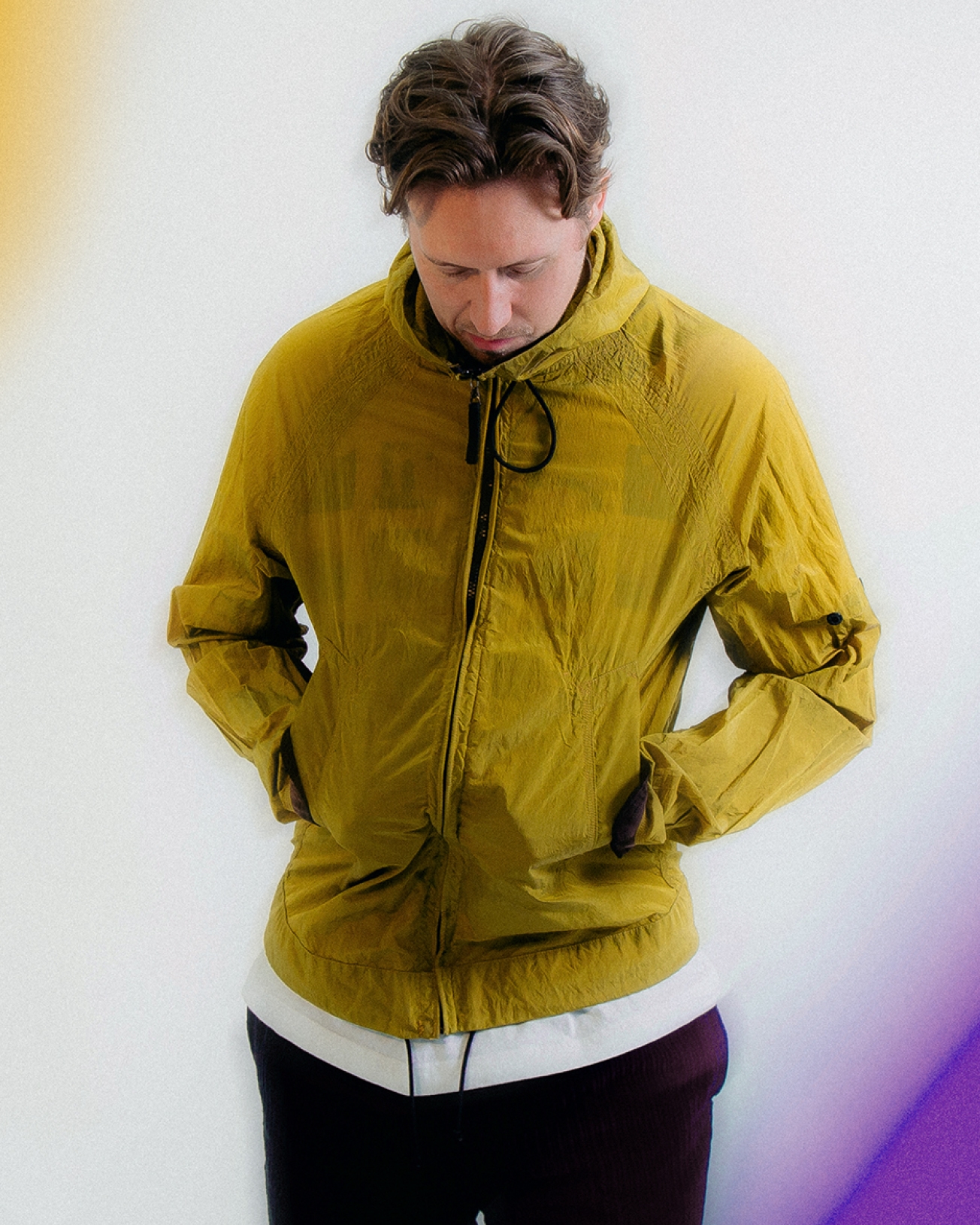
His dream collaboration would be Frank Ocean, “because he's a genius, you have the opportunity to do almost anything, he'll make sense of your weird idea. You can't do that unless you're in with certain people.” As we speak he’s days away from heading to the US, where he has a bunch of sessions planned, including some surprising names that are, in his words, “not the people you'd expect.”
Results from some of those will likely feature on ‘still slipping vol. two’, which is well underway. Buoyed by the positive reaction to the first record, he now feels even more intent on following his artistic instincts without inhibitions. “It gave me a lot of confidence. I see the first tape as a platform; I've got to a point where it's sturdy. I'm really proud of that record but to me it's just a step: the vision of where I can go seems so much bigger,” he says. “I know how different I want the next one to be. More abrasive — less of a bigger picture, and going in different directions a bit more. I feel like I can do that because I did the first one, and now people will be less shocked by me doing a full vocal track or something that isn't a straight club track.”
13 years on from the uncomfortable level of hype aimed at Joy Orbison’s debut record, the 35-year-old has navigated a few phases of his career and evolved into his most assured era. “My biggest achievement is the fact that I'm still here now. Because I definitely didn’t think that would be the case, I thought this would blow over really quick,” he reflects. Now feeling comfortable with his artistry, he’s looking ahead with his boldest ambitions yet. “I'm really happy with what I've done, but I would hate for it to stop here. There's still so much that I want this to be.”
'pinky ring / red velve7' is out now via XL & Hinge Finger, get it here
Patrick Hinton is Mixmag's Digital Editor, follow him on Twitter


